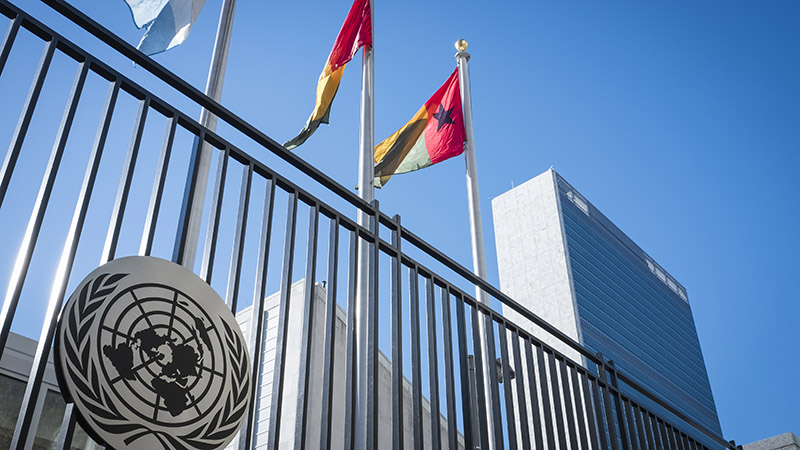His references to “mankind” are a little dated (hello, half of humanity!) but the key messages have stood the test of time.
It is depressing that a situation Vincent “Ċensu” Tabone presented as “urgent” in 1988 continues to deteriorate three decades later – albeit with some causes for hope.
Malta’s foreign minister was the first to put climate change on the agenda at the UN General Assembly on this day, 30 years ago.
“My government decided to take action at this session of the General Assembly due to the urgent need to conserve climate in the interests of mankind by protecting it against negative man-made changes,” he said, according to the transcript.
“We are convinced that there should be global recognition of the fundamental right of every human being to enjoy [the] climate in a state which best sustains life.”
Inspired by a warning from law professor David Attard, Malta set out to show a small country could respond to emerging threats and influence international affairs.
Tabone’s intervention led to a UN resolution that December, recognising climate change as a “common concern” requiring “timely action”. It asked the newly conceived Intergovernmental Panel on Climate Change (IPCC) to advise on the state of climate science and response strategies.
What happens in the next few months will impact the future of the Paris Agreement and the global climate
CHN will be there keeping you informed from the inside.
If you value our coverage, please consider helping us. Become a CHN patron for as little as $5 per month.
We have set up a Patreon account. It’s a simple, safe and easy way for you to become part of a community that will secure and guide our future.
Thank you!
A dozen other countries spoke, universally backing Malta’s call to action. There was some mild disagreement over the legal framing of the issue and its institutional home; nobody disputed the underlying science.
Joanna Depledge, co-curator of an exhibition at the UN climate headquarters on its institutional history, says the science had developed significantly over the previous decade.
“While the issue of climate change was unfamiliar to most diplomats, scientists had long suspected that human activities associated with industrialization – notably burning fossil fuels, deforestation and intensive agriculture – could release greenhouse gases that would accumulate in the atmosphere and lead to a warming world,” she tells Climate Home News.
In the discussion opened by Tabone, diplomats showed awareness of some of the expected impacts of global warming and ways to cut greenhouse gas emissions. The vulnerability of small islands like the Maldives was mentioned. So was the potential of nuclear and solar power to displace coal.
Yet there were few indications of how fraught and protracted the struggle to tackle climate change would become. In 30 years of oil lobby misinformation and bitter disputes over who is responsible, emissions have continued to rise, with global temperatures passing 1C above pre-industrial levels.
— Cris Robertson ✍🏼 (@karooyouth) October 23, 2018
Perhaps the clearest foresight came from Colombia’s delegate Enrique Peñalosa Camargo – father of today’s mayor of Bogotá.
“The political challenge is not an easy one. In the developed world, the oil and car-manufacturing interests have a lot of power. In the developing world debt, trade deficits and the vital need to increase the standard of living of poor populations enjoy top political priority,” he said.
“But,” he added, citing Norwegian prime minister Gro Harlem Bruntland, “if we do not succeed in putting our message of urgency through to today’s parents and decision-makers, we risk undermining our children’s fundamental right to a healthy, life-enhancing environment.”
This month’s IPCC report on the science of 1.5C warming underscored how much more acute the problem has got since then.
It would be easy to conclude that the UN has failed. The pioneers of climate diplomacy certainly underestimated the countervailing forces. But the process started that day did eventually, in 2015, yield an international pact that most of the world – don’t mention the US, or indeed Brazil – is committed to.
